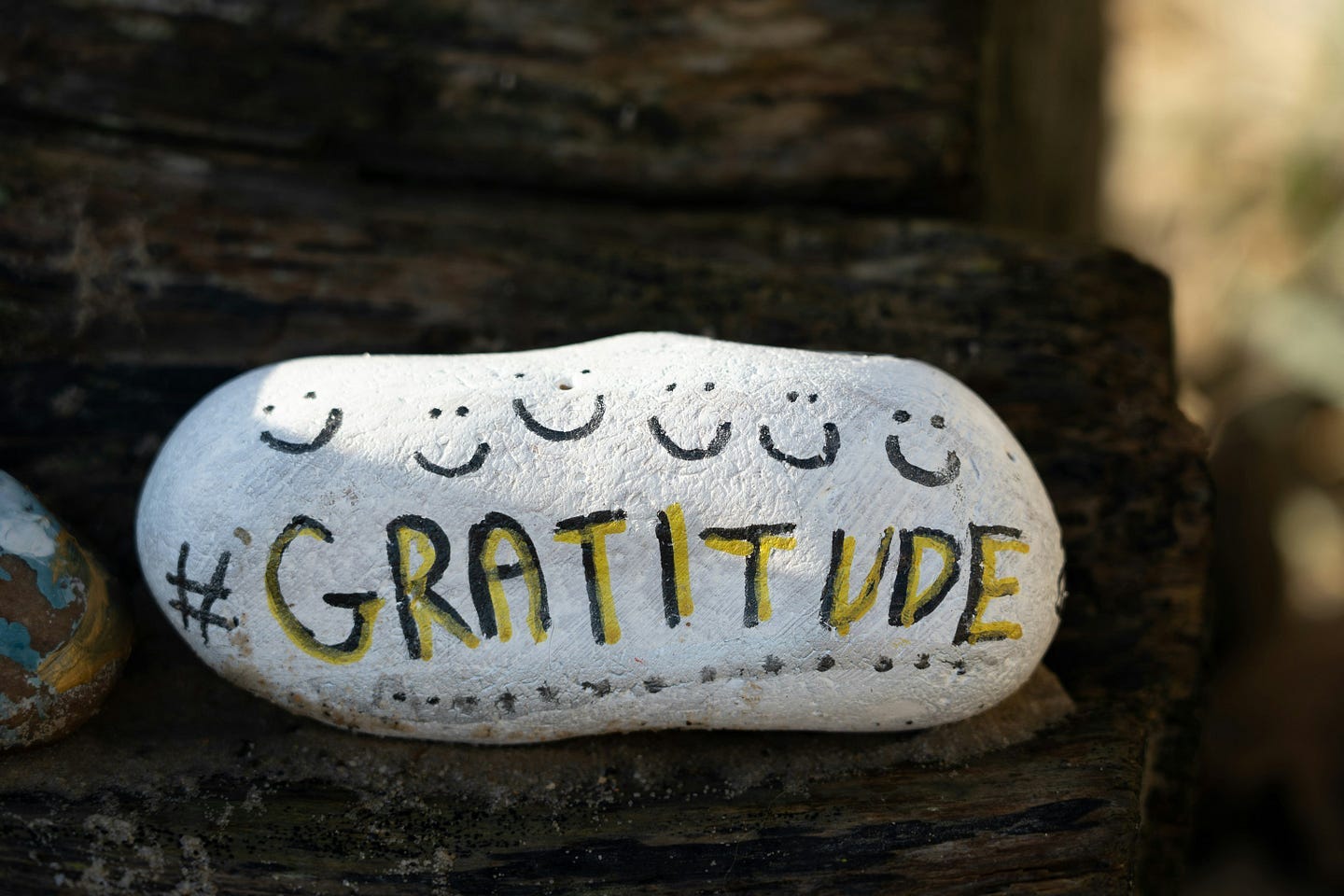One Exercise That Can Increase Your Happiness FREE of Charge
40% of our mental health is up to us

Non-Medicinal Mental Health Practices
I’m a firm believer that when you can, opt for the non-medicinal route to improve your mental health. There are many levels and complexities that can come with anxiety and depressive states (two common forms of mental health issues), which I’m no expert at, nor will I dive into, but as someone who has not significantly struggled with mental health for most of my life, I can say a large part of this is due to my actions.
Scientific research shows that our genetic set point accounts for 50% of our happiness, circumstances for 10%, and intentional activity for 40% (Lyubomirsky, 2007).
Six things that help me maintain a solid mental health foundation include:
Maintain a physically active lifestyle.
Consume a healthy diet most of the time.
Practice gratitude in my daily interactions with others.
Consistently work my goals and ensure they have a clear “why”.
Limit my interactions with negative people.
Stay productive in my life.
Avoid high media consumption (news, social, television, etc.).
Travel frequently to new places.
Now, these are just things that have worked for me. Your list might be completely different. I want to focus on number three.
Why Gratitude Is So Powerful for Your Mental Health
I started practicing gratitude as a kid. My parents taught my siblings and me to say “thank you” to others and for positive experiences in our lives.
Watching “The Secret " accelerated the practice even more.
“[…] many studies over the past decade have found that people who consciously count their blessings tend to be happier and less depressed (Brown 2017).
Gratitude is key to elevating and improving one's happiness, which ultimately improves one's overall mental health state.
When you’re focused on the positives of your life, you tend to feel better about life. When you’re not hyper-focused on everything going wrong, you might experience less anxiety, less stress, and fewer negative feelings about yourself and others.
So, what can you start doing today that can elevate your happiness?
Maintain a gratitude journal.
Practice daily gratitude in all of your daily interactions; take nothing and no one for granted (which is easier said than done, but once you start practicing gratitude in your daily life, it becomes easier to feel and practice gratitude in more and more of your interactions with people and experiences you encounter in daily life).
It doesn’t matter which one you do, as long as you at least do one of them. I’ve tried both, and number two seems to work best for me, but for others, journaling what they’re grateful for has been mighty beneficial.
Experiment for 7 days to learn which works best for you and see how your mood, thoughts, and mindset shift.
Medication and Therapy
Disclaimer: There are cases where medication is beneficial and necessary. Moreover, therapy is generally a good practice. I do my personal best to avoid dependency on traditional medication and even constant therapy because I feel humans frequently underestimate the power they contain to heal themselves with proper knowledge and resources. There is a delicate balance to all of these. Everything in moderation can be an excellent rule unless your situation demands something different.
References
Lyubomirsky, Sonja. The How of Happiness: A Scientific Approach to Getting the Life You Want. Penguin Press, 2007.
Brown, David. “How Gratitude Changes You and Your Brain.” Greater Good Science Center, University of California, Berkeley, 2017, https://greatergood.berkeley.edu/article/item/how_gratitude_changes_you_and_your_brain.
Thank you for reading. Visit Blacklisted Library or destinyh.com for free books




The mind is so powerful. It can cause cancer and can cure cancer. Well said!
This was a very helpful & educational article. Thanks. 🙏🏽